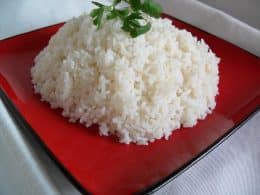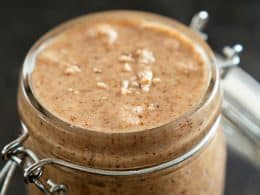Organ meat is the internal organs and entrails of a butchered animal, such as the tail, feet, liver, and testicles.
It is also known as offal gotten from the term “off fall,” although the word “offal” does not refer to any specific list of edible organs, but includes most internal organs and excludes muscle and bone.
It may also apply to the derivatives from milled grains, such as corn or wheat. Organ meat can also be called a variety of meat or pluck.
Around the world, many different cultures like to use an animal in its whole for food, making use of the organs, blood, and bones. In some cultures, however, eating organ meat as food is considered to be a taboo. Meanwhile, in places like the United States, others use it as everyday food, or in delicacies.
Some offal dishes include U.S. chitterlings, sweetbread, foie gras, and pâté. After butchering or skinning an animal, offal not used directly for human consumption may be used for animal consumption or processed to produce material for plant fertilizer.
For predatory animals in the natural world, eating the liver and some other organ of their prey is of considerable significance because these parts are densely packed with nutrients.
The consumption of Organ meats comes with some health benefits as well as risks. Some people have regarded organ meats as a ‘superfood’ because they are abundant sources of vitamins and nutrients, including:
Common Organ Meats and their benefits
There are several types of organ meats, some of which are better known than others. Here is are some of the well-known organ meats and their potential benefits.
Liver
The liver is the most nutrient-dense of all organ meat. It is an excellent source of vitamin A, which is beneficial for eye health and also helps in reducing diseases that cause inflammation, such as Alzheimer’s disease or arthritis.
The liver also contains many other nutrients which are known to be of excellent benefits to the heart and for increasing the blood’s hemoglobin levels. Such nutritional content includes; folic acid, chromium, iron, copper, and zinc.
Heart
The heart is a great source of vitamins B-complex (vitamins B2, B6, and B12.) The B vitamins found in the organ have such as the heart, retain a cardioprotective effect, this means that they protect against heart disease.
These vitamins are also associated with the maintenance of healthy blood pressure and circulation, reducing high cholesterol, and help in forming healthy blood vessels.
B vitamins are beneficial to the brain and are known to reduce the risk of dementia, depression, and anxiety. Also, heart meat is an excellent source of coenzyme Q10 (CoQ10).
The coenzyme is an antioxidant that can help treat and prevent certain heart disease, slow down the aging process, and improve one’s energy levels. The heart is rich in other nutrients such as folate, iron, zinc, and selenium.
Kidney
This Organ meat is a rich source of protein and other nutrients such as omega 3 fatty acids.
Omega 3 is a vital component of the membranes which surround each cell in the body. It also provides calories that give energy to the body and has many functions in the heart, blood vessels, lungs, eyes, the brain as well as the sperm cells.
The heart as organ meat is also known to contain anti-inflammatory properties, which are good for heart health.
Tongue
Tongue meat is rich in calories, providing the consumer with a lot of energy; it also contains fatty acids, as well as zinc, iron, choline, and vitamin B12. This meat is considered extremely beneficial for those recovering from illness or for pregnant women.
Gizzard
Gizzards are an excellent source of vitamins. It contains a high percent of B12, which helps prevent anemia and is vital for brain function. It also contains a fair amount of protein and is low in fat. It is mostly found in birds like chicken and ducks.
Other health benefits
Organ meat containing folate is considered beneficial for fertility and for helping avoid fetal deformities in a baby, such as heart problems and spina bifida.
Also, vitamin B6 can help during the morning sickness phase of pregnancy. Many organ meat have high nutritional value and can be very beneficial to human health in many ways.
Organ meat is high in cholesterol and saturated fat, contrary to the common belief, these components are now thought to be essential for a balanced diet but must be consumed in moderation.
Negative Health implications of Organ meat
The organ part of animal meats is high in cholesterol, purine, and saturated fats. For this reason, the consumption of organ meats is potentially a risk for people with heart conditions or gout.
It is advised that people with gout should avoid eating organ meats, as they may contain purine, which is a molecule associated with gout flare-ups.
If one consumes an animal that has been exposed to toxins or pesticides, there would be concerns about the person’s health as such toxins would concentration on some of these organs being consumed.
However, while organs such as the kidney and liver act as a filter for toxins that enter the body, it is of importance to know that these toxins are not stored but excreted.
Organ meats collected from stressed and mistreated animals can cause all sorts of problems as fatty deposits can often build-up, especially around the heart and kidneys.
Basically, if the animal weren’t properly groomed or raised in an unhealthy environment, the animals’ internal organs certainly wouldn’t be healthy for consumption.
Endnote
Organ meats can be a very healthful and regular part of a balanced diet, as long as it is properly prepared and eaten moderately. If you must eat organ meats, make sure it sourced from a farm that utilizes organic practices and puts its animals out for pasture.
Furthermore, there are risks to overeating organ meats. If anyone is looking to make significant changes in their diets, they should endeavor to consult their doctor first and carry out a thorough research on the pros and cons of adding them to your diet.











